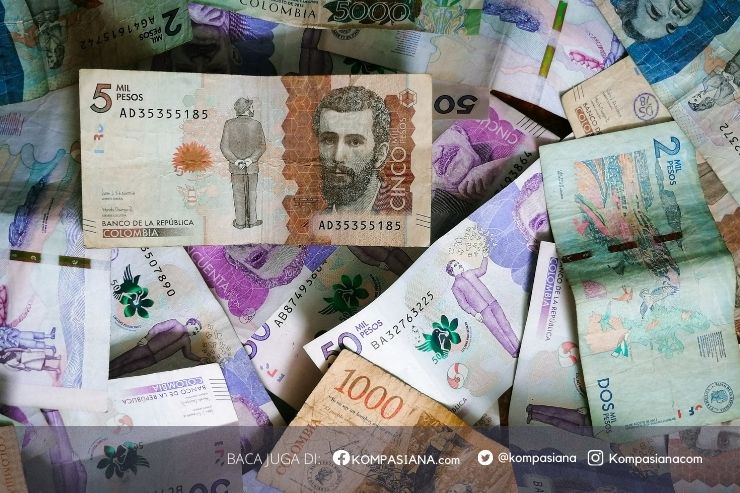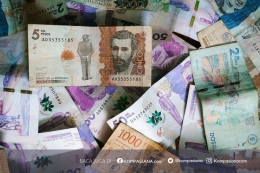Talking about the country is inseparable from the role of the economy. Economic growth becomes a barometer to see the climate and strength of a country. Therefore many countries continue to innovate and make strategies to increase the percentage of economic growth, with a high economic growth of a country will show the country's success in managing natural resources and economic resources, this can also describe the per capital income consumption and human growth index. .
That's what makes many countries carry out strategies and diplomacy with other countries in order to enlarge the scope of the nation's trade market, with the large market coverage and marketing land control in many countries, of course, will be created a great power by the country's finances.
This also happened in Indonesia, talking about the economy certainly cannot be separated from the 2 factors that are affected in the growth itself, namely microeconomics and macroeconomics. Microeconomics can be defined as economics that studies economic variables with a smaller scope, such as consumer behavior, companies, and much more. While the macro economy is the opposite, namely discussing the economy with a greater scope, for example symptoms of inflation, national income, unemployment, gross domestic violence, etc.
Economic growth becomes something of concern to the government which wants stable economic conditions in Indonesia, which is certainly represented by the percentage of economic growth. Indonesia is a country with a population of 262.7 million (CIA world fatbook), currently economic growth in Indonesia is 5.1% in 2019 (moneysmart), but the growth is still said to be low compared to other ASEAN countries such as the Philippines which is at 6 , 52% and Vietnam 6.60%.
Looking at the data shows that there are still many targets that the government must carry out to improve its economy. But seeing this fact shows that Indonesia is still far from the target, it happens because of some weaknesses of Indonesia in strengthening its economy, one of which is because Indonesia still has economic dependence on the nation "others one of which is China, the dependency includes all aspects such as supply dependence goods, debt and infrastructure inadequacy.
Indonesia's economic weakness
First, Indonesia is a large country in the world with a population of 262.7 billion with their respective backgrounds and professions, one of which is the usha or SMEs who reach 59.2 million (CNN Indonesia), which certainly becomes an opportunity for the Indonesian people. to meet the needs and stability of trade in our country. But the fact is this has actually become a problem for the Indonesian government to handle MSMEs which have lost the onslaught of Chinese products.
We know that Indonesia's trade balance with China experienced a deficit during 2013 - 2017 which in 2017 we experienced a deficit of 12.68 billion dollars (the Indonesian Ministry of Trade) which reflects our imports more than exports. And also we see a surprising fact where 90% of products sold in our e-commerce are actually products from abroad whose prices tend to be cheaper than our own prices. From this it can be seen that the microeconomics associated with strengthening our economy is said to be dependent on China, MSMEs do not benefit from the market in their own country due to the onslaught of foreign products.
When foreign goods are stopped circulating in Indonesia, surely we will also experience instability in economic conditions because 90% of our inventory is lost, consequently what is certain goods in the market are few and will cause massive inflation which will affect many aspects of the economy such as falling prices shares in the international market, and also the scarcity of goods. While our MSMEs have not been able to fill 90% of the goods left behind in a relatively short period of time, this can be overcome by MSMEs, but it also takes a long time and synchronizes with all groups up to the government.
Secondly, our dependence faces the fact that we still have considerable debt with China. Based on statistical data on Indonesia's foreign debt (SLUN) issued by Banki Indonesia (BI) as of September 2019, it stated that Indonesia's debt originating from China was recorded at 17.75 billion dollars or equivalent to 274 trillion (in exchange rates of 13,940). with large debts making Indonesia's independence in making policies against fraud committed by China to be very careful because it is feared that this will make China react to ask Indonesia to pay the debt that Indonesia has.
While Indonesia's economic stability is still unstable and Indonesia still needs debt for the realization of government programs on infrastructure development. With infrastructure improvements it is hoped that the trade cycle at home and abroad will progress and increase per capita income, and Indonesia can realize its goal of becoming one of the countries with a large GDP.










